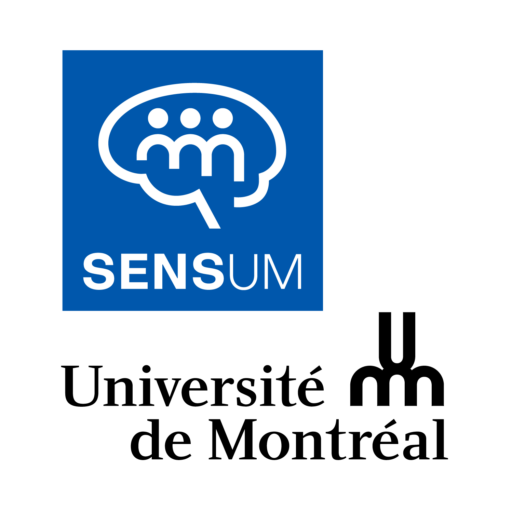Principles
SENSUM’s activities are guided by 7 general principles:
- Promote research and teaching excellence.
By promoting excellence, SENSUM supports research with methodological rigor, thinking based off conclusive proofs and scientific validity. SENSUM also favours innovative teaching techniques that have pedagogical repercussions that have significant reputation on local, national, and international levels.
- Develop interdisciplinarity and complementarity in research and in training.
The interdisciplinary defended by UMINM surpasses the simple juxtaposition or the hierarchization of knowledge in neuroscience and mental health. It privileges joint research and training. This union demands complementarity in comprehension of phenomena and the transmission of knowledge.
- Favouring collaborations and partnerships.
SENSUM encourages the combination of knowledge, resources, and methodical and technological tools with the help of different leaders in neuroscience and mental health research. These collaborations and partnerships allow a comprehensive and significant understanding of the complex systems in neuroscience and mental health.
- Optimise social impact and visibility.
The research activities and the training in neuroscience and mental health led by SENSUM have to leave meaningful and sustainable consequences on the individual (life conditions, health, autonomy and capacity) and on society in general (social relationships, equality, better policy changes, healthcare accessibility and economic impacts). SENSUM’s scientific activities and training benefit actors on the local, national and international scale because of its communication and visibility strategies.
- Develop the multidirectional dialogue between the academic community, society, the industry and practicing and interventional groups.
SENSUM privileges the participation of every entity in its research. It can be groups coming from the industry, the patients, the clinics, or society in general.
This joint effort allows, throughout the whole research process, to improve the understanding of all scientific, social and practical aspects of the research. This process of collaboration is a key concept that lays the foundation for the research and allows to have maximum impact on society and its populations.
- Reduce inequalities, potential bias and favour inclusivity.
With its interdisciplinary, research supported by SENSUM is completed with multiple steps (fundamental research, studies of social impact, etc.) and implies multiple levels of participation (researchers, institutions, partnered patients, etc.). SENSUM encourages rigorous, inclusive, bias-free research with its reflective procedure. A modern approach to neuroscience and mental health research implies a collaboration between multiple people with different lived experiences.
- Support the emergence of entrepreneurship mechanisms.
SENSUM supports entrepreneurship opportunities by sharing its knowledge and expertise on its technological resources for big projects to succeed. To ensure a good execution of our obligations, SENSUM reaffirms the principles of transparency, its fight against conflicts of interest and conspiracies. SENSUM requests from its partners socially responsible and ethical behaviour and an engagement to preserve the environment.
This content has been updated on 12 July 2023 at 22 h 25 min.
